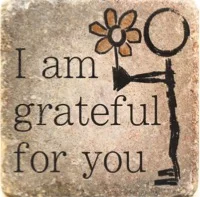You can read my blog below or listen to my audio blog here.
Transitions. I could probably write and may continue to write several blogs about how transitions can affect us as individuals, couples and families. I think “transition” is a general term that applies to so many life-changing moments. There are natural transitions we go through in life without telling ourselves to go through them- like going from childhood to adolescence, from adolescence to adulthood, and beyond. The natural transitions can create a great deal of stress and anxiety when the transitions are inevitable. Now consider transitions you independently decide to make and the stress and anxiety that can result. I am currently transitioning with my work, and I thought it could not hurt to write a blog specific to career transitions.
When I think about the role our work plays in our life, it made me think of a time when I was visiting a good friend in Los Angeles and when we met some people at a restaurant. One of the first things we began to ask each other was, “What do you do for a living?” It seems like a pretty typical conversation starter in America. One of the people we asked responded, “Why is it that people are always so consumed with what others do for a living? Can’t we just talk about what we enjoy doing versus our work?” His response prompted me think about the role our jobs play in our lives and how it can feel as if our jobs define us as people. Furthermore, our job satisfaction can define our own level of happiness. It becomes apparent with my clients how big of a role their jobs play in their personal life. When they enjoy work, it is likely their happiness away from work is increased. When they dread waking up everyday because work awaits them, the idea of being happy may be the last thing on their minds.
When considering your career, I wonder if you have asked yourself the following questions (only to name a few):
- Do I enjoy what I do everyday at work?
- Are the tasks fulfilling?
- Am I challenged enough? Or, do I even want to be challenged by my work?
- Is what I do everyday my passion?
- Does my pay reflect my work? How does this impact my self-worth?
- Am I energized when I leave work, or exhausted?
- Am I able to reach my fullest potential in my current job? Or, do I feel limited to reach my potential?
- Do I enjoy working for others or for myself?
- Do I receive needed recognition for my efforts?
- Am I able to balance work/home life the way I need?
Depending on how you answer these questions, your decisions related to your work may greatly vary. For me, I started to ask myself some of these questions as my own personal responsibility for my happiness. I determined a change needed to be made. I will now be continuing my private practice independently and renting my own dedicated office space. While this decision brings great excitement for myself professionally, this also means it is transition time…
My mom used to always tell me, “Mandi, you have to work with yourself on transitions. Remember the first two weeks will always be the hardest, then you will get through it.” This advice from her has helped me throughout life whether it was when moving abroad, changing up my plans with education or work, and the list could go on. I think the significance of this advice is:
there is time involved to gain confidence during transitions
One of my closest friends is also changing up her career and her and I discussed over dinner how one’s confidence in decision making can be challenged during making transitions- especially with work. It is challenging to know you are making the right move. What if you are confident and secure in your old role, and now all of a sudden you are deciding to shake things up? It can feel scary and your confidence can be confronted during the transition. She shared a quote she recently heard, “Confidence, the stuff that turns thought into action.” This quote seems so simple on the surface, but I think it can be helpful to dig deep into our own thoughts, to then ask ourselves if we are turning them into action.
When going through a transition, it is important to continue to recognize it can take time to consider which thoughts are most important to you and your happiness. What thoughts occupy most of your unoccupied time? Meaning, what are you always finding yourself worrying about? After you can determine the thoughts that bring about the greatest concern, taking the time to turn these thoughts into action can help build your confidence during your decision-making in transitions. After making the decision, it can be helpful to also consider it may take some time to reaffirm you made the right one. Maybe it takes two weeks to gain some confidence, or maybe it takes a few months. Regardless, setting the expectation it will take time to feel confident may help during a transition.
When thinking about making a transition in life, whether it is related to your career or something else, consider time and confidence. When discussing with a former teen client of mine the big decision of considering an out of state college, she said something like, “YOLO (you only live once) Mandi, I’ve thought this through and now I am making it happen.” My client’s confidence helped turn the thoughts into action with a great deal of time and consideration. YOLO, so maybe approaching your next transition with this new definition of confidence and consideration of time can be of help with minimizing uncertainty and fear with the needed change ahead.





